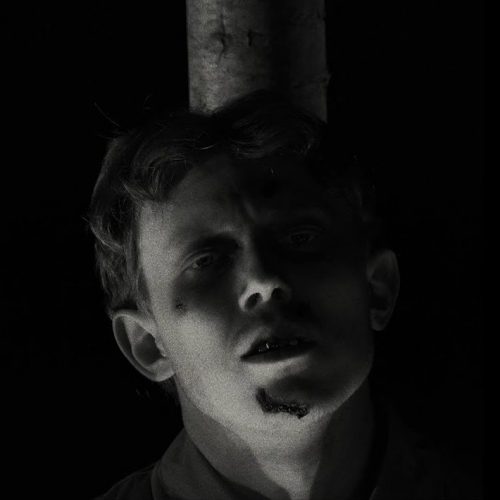When I first heard “Out Getting Ribs”, the breakthrough single from King Krule (fka Zoo Kid, aka London-based singer-songwriter Archy Marshall), I was in my freshman year of college, trying to pump out a history essay within a night. I had procrastinated long enough, and I needed to focus, so I put on a Spotify playlist as background noise and set to work. I can’t remember what the playlist was, but I was about eight songs deep by the time I heard an amp crackle to life and a guitar stir itself awake.
Ten seconds into the song, I stopped typing, my deadline forgotten, and I listened.
Even if I didn’t love the song like I do, I probably would’ve stopped to listen anyway, because “Out Getting Ribs” is a uniquely striking song. It’s almost entirely beatless, save for a distant kick drum, thumping as though through a wall, that lasts for maybe eight seconds. The guitar is jazzy and bluesy, and it gleams like moonlight on the Thames.
Most striking of all is Marshall’s voice, gnarled by cigarettes and choked with emotion, cutting through the dreamy atmosphere with the declaration that “hate runs through [his] blood”. I was shocked to find that, not only was Marshall a gawky young man with a more-than-passing resemblance to Alfred E. Neuman, but that he was only fifteen when he recorded “Out Getting Ribs”. Fifteen! When I was fifteen, I sounded like a bumblebee with a head cold.
Since “Out Getting Ribs”, Marshall has released three excellent albums (two as King Krule, one under his own name), and he’s about to release a fourth, called Man Alive!. His career has been defined by a creeping, nocturnal atmosphere, as well as cryptic, surreal lyrics that bring to mind a man who spends his time alone in an apartment with the lights off. Although Marshall is now married with a young daughter, that hasn’t changed his aesthetic; on “(Don’t Let The Dragon) Draag On”, he sounds as haunted and alienated as ever, even as the title references Adventure Time.
Co-written by fellow London guitar weirdo Nilufer Yanya, “Draag On” is bleak, eerie, and elliptical. It fades in, with its rainy-night guitars and a loping beat; two and a half minutes later, it fades out, like an unexplained radio transmission. In between, Marshall sings in a numb mumble, evoking the kind of marrow-deep depression that leaves its victims paralyzed in bed.
His room is “bathed in grey”, and something drips from the ceiling; the walls grow taller every day; all he can do is try to “self-medicate” through drink, drugs, or something else. He sounds disconnected from his pain, but in the moment it’s hard to imagine anyone feeling worse.
The odd spelling of “Draag” in the title is intentional. In the surrealist animated masterpiece La planéte sauvage, humans are reduced to animals by a race of giant blue aliens called the Draag, so technologically and spiritually advanced that at first you might mistake them for gods. As the song fades out, Marshall asks: “You think those blue giants feel the same?/You think they ever have these days?” He doesn’t provide an answer, leaving us to answer the questions ourselves. Can beings of unimaginable power become crippled by depression? Is it a uniquely human affliction? Would either answer make you feel better?







